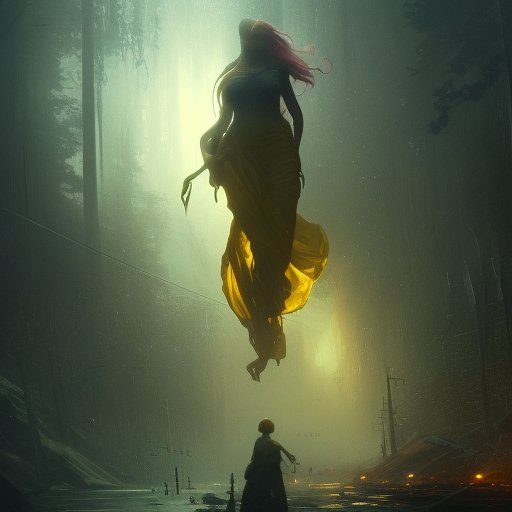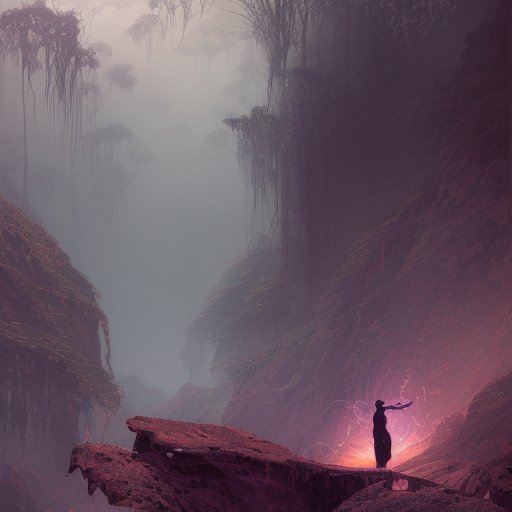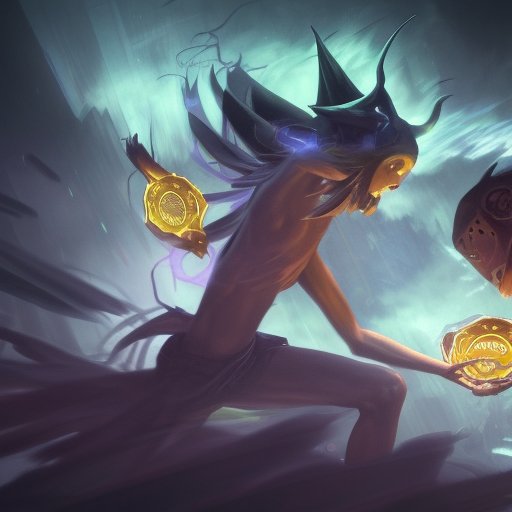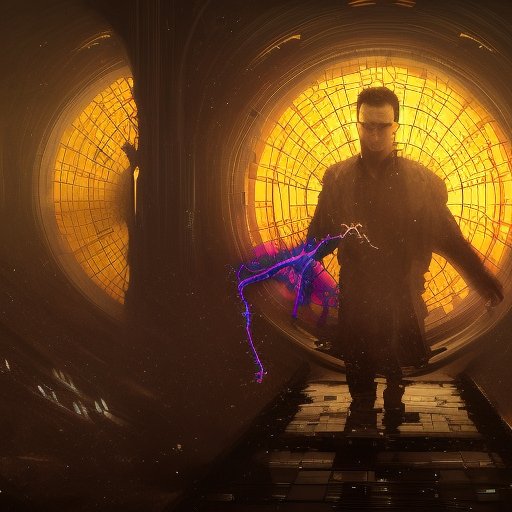
“Last Thursdayism” is a provocative philosophical concept, and as we look to the future, it has become more relevant than ever. Our technological advancements have already blurred the boundaries between reality and simulation, leaving us to question whether our perception of the universe has any real substance. The potential to manipulate reality through technology also raises ethical concerns, and it is crucial to consider how such advancements may transform our society. As we continue to explore the cosmos, delve deeper into neuroscience, and push the boundaries of what is possible, we may discover that the true nature of reality is far stranger and more complex than we previously imagined.
I. Introduction
Ladies and gentlemen, boys and girls, and all beings from planets yet undiscovered, welcome to the intrepid exploration of “Last Thursdayism.” Now, hold onto your space helmets because we’re about to take a journey that traverses the depths of existentialism, physics, and philosophy.

The concept of “Last Thursdayism” is simple yet profound. It posits that the universe was created last Thursday, and what has been experienced before then is mere illusion. This means that everything from our childhood memories to our understanding of natural laws are all figments of our imagination. Mind-boggling, isn’t it?
While it sounds like an outrageous claim, the implications of “Last Thursdayism” are both fascinating and profound. This concept has gained traction as we continue to make strides in the fields of neuroscience and virtual reality, bringing us to a crossroads where reality and simulation blend into one.
As we charge headlong into the realms of the unknown, the boundaries of what is considered real continue to expand. So, it’s only fitting that we delve deeper into the mysteries of “Last Thursdayism” with a sharp and curious mind, brimming with questions and wonder.
In this article, we will explore how the question of whether the universe was created last Thursday or not becomes more relevant than ever in our day and age, with a plethora of technological advancements and all the attendant moral and ethical issues that accompany them. The potential consequences of manipulating reality and the role of truth-seeking in the face of such fantastical concepts will also be discussed.
So settle in, grab your favorite space beverage, and get ready to explore the uncharted territories of “Last Thursdayism” and its relevance to our futuristic world.
II. Futuristic Philosophical Musings
Philosophy has always been inextricably linked to science fiction, stemming from our innate fascination with the unknown and the questions that lie beyond our understanding. And “Last Thursdayism” is a perfect example of this kind of fantastical concept that has endured the test of time.

As we dive into the realm of futuristic philosophical musings, we’re entranced by the way that science fiction elements bend and stretch our belief systems. We are sent tumbling down rabbit holes of complexities that would have once been considered in the realm of the fantastic. But, we must take care not to abandon our analytical skills and critical thinking merely because we are exploring untested ideas.
The idea of reality being an illusion or that the universe has only been in existence since last Thursday raises the eternal questions of truth and what it truly means to be alive. How do we determine what is real and what is merely a projection of our minds? What does it mean to have consciousness?
One can imagine that if the universe was created last Thursday, then what was before that event is likely a mystery that will evade us forever. It challenges us to think outside of the box and pushes our limits of understanding to the frontiers of our imaginations.
The idea of one’s past being a complete fabrication collapses the solidity of our understanding of memory and of the past itself. It begs us to ask: what is real? At what point does the reality of things stop being reality, and what differentiates our reality from that of other beings in the universe?
As we question the nature of reality and what it means to exist, we find ourselves caught up in a whirlwind of philosophical musings. These, in turn, push us to consider and reconsider the very meaning of our existence. The rest of this article will unearth the potential consequences of manipulating reality and what we can learn from our search for truth in this technologically advanced age.
III. Technological Advancements
The question of “Last Thursdayism” could very well become more concrete and applicable as technology continues to evolve in ways we never thought possible. From virtual reality to quantum computing, we’re witnessing a period of significant growth and advancement, leaving many of us with more questions than answers.
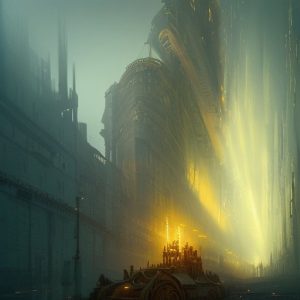
The rise of wearable technology and bioengineering has given a glimpse of what is possible when we merge technology with the human body. The rise of artificial intelligence has even blurred the lines between the creation and the creator, which begs the question of whether our reality is, in fact, shaped by technology.
Our continued exploration of space and focus on sustainability has also enabled us to probe beyond the confines of our planet, and may even impact our understanding of reality in ways we never considered before.
However, as with all technological advancements, there are also potential downsides. Theoretically, we could manipulate reality to a certain extent, leading to a potential ethically questionable crisis. Furthermore, we could use said techniques to blindly accept falsehoods.
That being said, it seems clear that in this future not too far away, the relationship between technology and reality is becoming more complicated by the day. So it’s crucial to examine the impact that such advancements will have on our perceptions of the world and the nature of reality itself.
The future looks bright, indeed. Nonetheless, it is important to grapple with what “Last Thursdayism” means in this age of technology and what implications technological advancements will have on our understanding of the universe. It’s time to put on our thinking caps and ponder what the next innovation will be, while being mindful of the ethical considerations that come with it.
IV. The Dark Side of Reality Hacking
However, there is a dark side to every coin, and the concept of “Last Thursdayism” is no exception. While the idea of manipulating reality may seem like a harmless pursuit, there are inherent dangers and ethical considerations that must be taken into account.

If reality is merely an illusion, then everything we believe in, from our most cherished memories to our fundamental moral principles, is up for debate. This raises the specter of moral relativism, as the very definition of right and wrong becomes murky.
Moreover, if we accept that reality is something that can be manipulated, then who holds the power to control it? The potential for abuse is high, with the possibility of individuals or organizations having the ability to create their version of reality, which may be at odds with what most people perceive to be genuine.
Furthermore, hacking reality is a delicate endeavor, and the consequences of making a mistake or being ill-intentioned can be severe. It raises important questions about the role of cybersecurity, the ethical use of technology, and the stewardship of information.
There is also the possibility of implanting false memories or manipulating individual perceptions of reality, leading down a dystopian path of government control or corporate manipulation.
As we continue to push the boundaries of what is technologically and scientifically possible, it is essential to tread carefully along these lines. The potential consequences of tampering with reality are enormous, and we must exercise caution in determining the best way forward.
V. The Quest for Truth
As humans, our quest for truth is as old as time itself. Since the earliest stages of human development, we have sought to understand the mysteries of the universe through observation, experimentation, and critical thinking.
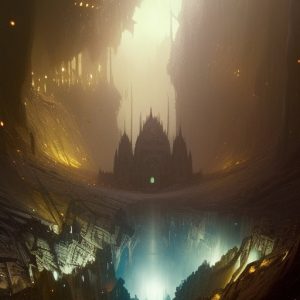
As we look towards the future, the concept of “Last Thursdayism” and other philosophical theories about the nature of reality have become more relevant than ever. In the face of rapidly advancing technology and our ever-growing understanding of the universe, we must ask ourselves: what is the ultimate truth?
Our exploration of the universe has brought us closer and closer to answers, but at the same time, the questions continue to proliferate. What is real? Is there such a thing as objective reality? Can we ever understand the universe completely, or are there some things that will forever remain beyond our grasp?
These are not idle musings, for the answers to these questions could have a profound impact on our society, culture, and ethics. A deeper understanding of the nature of reality could lead to groundbreaking technological advancements, but it could also expose uncomfortable truths about our world.
Moreover, the quest for truth is not just a scientific or philosophical endeavor, but also a deeply human one. We seek the truth to better understand ourselves and our place in the universe. We want to know what it means to be alive and what our purpose is in this vast cosmos.
In the end, the quest for truth may be the most important endeavor that we pursue as a civilization, for there can be no progress or growth without it. As we continue to explore the frontiers of science and technology, it’s essential that we never lose sight of the ultimate goal: to unlock the secrets of the universe and understand our place in it.
VI. The Future of Last Thursdayism
Venture with us into the wide-open spaces of the future and ponder the implications of “Last Thursdayism” for years to come. As we stand at the intersection of philosophy, physics, and technology, the concept of the universe being created last Thursday takes on an even greater significance in our futuristic world.

One possible trajectory of “Last Thursdayism” is that we may be living in a simulation that can be manipulated, leading to a myriad of philosophical and ethical dilemmas. The potential to alter and create reality through technology could give rise to questions of authenticity and free will.
Alternatively, as technology continues to expand, humanity may discover a technological version of the “Grand Unification Theory” that reconciles simulation theory with the physical world. It may be that these two seemingly disparate fields can be integrated into a single, unified conception of the universe.
As with any provocative philosophical concept, there are those who will embrace “Last Thursdayism” and those who will swim against its tide. The path to truth and understanding, however, can only be forged through open-minded and honest dialogue in which we examine new ideas and question our long-held beliefs.
So, what does the future hold for “Last Thursdayism”? Only time will tell. With advances in quantum mechanics, neuroscience, and other fields, we may be on the cusp of groundbreaking discoveries that will fundamentally alter our understanding of the universe.
One thing is clear: as we continue to explore the cosmos and expand our technological capabilities, we may discover that the true nature of reality is far more complex and bizarre than we ever imagined. The only certainty is uncertainty – but it is in this uncertainty that we find a glimmer of hope for transcendence and understanding.
VII. Conclusions and Implications
As we come to the end of our journey through the possibilities of “Last Thursdayism,” we can see how interconnected all the ideas, from philosophy to science, have become. The idea that our reality could be a mere illusion, created last Thursday or any other day, continues to spark the imagination of scientists, philosophers, and writers alike, even in this futuristic world.

As we delve deeper into the vast expanse of technology, we could soon find ourselves questioning the fabric of reality in ways we never thought possible. But with this questioning comes responsibility. We must ask ourselves how far we are willing to go into the unknown, into the breach, in pursuit of knowledge.
The potential ethical implications of reality hacking and the manipulation of the universe cannot be brushed off lightly. As with any new technology, careful consideration must be taken in terms of its impact on society, the environment, and the grand scheme of things.
However, what the study of “Last Thursdayism” does offer us is an opportunity to rethink previous assumptions and develop a better understanding of reality itself. And as we continue to strive for greater knowledge and explore the mysteries of the universe, perhaps we’ll come to the realization that the universe is far stranger and more complex than we could ever imagine.
Ultimately, whether the universe was created last Thursday or not is less important than the ideas that it sparks, the questions it poses, and the boundaries it pushes. We must continue to explore and expand our understanding of the universe with a healthy balance of scientific curiosity and ethical consideration.
So to all fellow explorers, multidimensional thinkers, and knowledge-seekers out there, let us continue our pursuit of the truth, but also be mindful of the consequences of our actions, and always strive to make a positive impact on the universe, created last Thursday or not.
